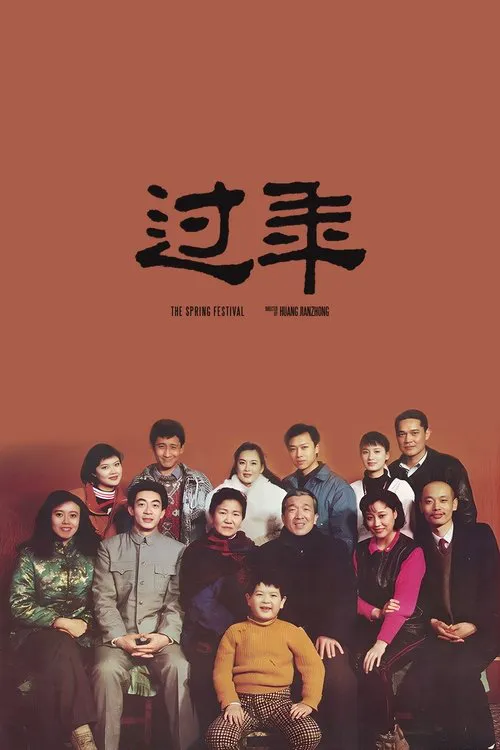The Spring Festival

Plot
The Spring Festival, directed by Hou Hsiao-hsien in 1996, tells the poignant story of a family's turmoil, which is set against the backdrop of the revered Chinese holiday, the Spring Festival, also known as the Chinese New Year. The story revolves around the strained relationship between a traditional, older generation and a younger, more modern generation. The film explores the complexities and conflicts that arise when traditional values and modern aspirations collide. The narrative begins on a day before the first day of the Chinese New Year, the "chu xi" or Chinese New Year's eve, a time of great significance and celebration in Chinese culture. On this evening, families come together to share a bountiful feast and engage in festive activities, but for this family, the atmosphere is tense and foreboding. The story centers around a family of five consisting of grandparents, parents, and two children. The matriarch of the family, a strict and traditional older woman, represents the old generation, who adheres unwaveringly to traditional values and customs. Her husband, an old man who struggles with dementia, clings to the past, reminding everyone of their ancestral roots and the responsibilities that come with it. On the other hand, the younger generation, comprising the parents and their two children, embody the spirit of modernity and progress. The mother, an independent and educated woman, aspires to provide a better life for her family, away from the constraints of traditional expectations and limitations. She values education and seeks to modernize the family's lifestyle, a notion that is met with resistance and disdain by her mother-in-law. As the family prepares for the Spring Festival, tensions rise, and the cracks in their relationships become more apparent. The mother's desire to break free from the shackles of tradition is seen as a rejection of their cultural heritage, while the father struggles to assert his identity and sense of belonging within the family. The father, a quiet and reserved individual, is caught in the middle, torn between his loyalty to his parents and his love for his wife and children. He is desperate to find a balance between conforming to his family's expectations and embracing the values of his wife, who sees the future in a different light. The film's portrayal of the "chu xi" celebration highlights the stark contrast between the traditional and modern generations. The older generation is depicted as clinging to nostalgic memories and honoring the ancestors, while the younger generation longs for a more contemporary and liberated way of life. The Spring Festival, in this context, becomes a metaphor for the generational conflict, a reminder of the disconnection between the past and the present. The film masterfully weaves a poignant and thought-provoking narrative that raises questions about tradition, cultural identity, and the human condition. Throughout the film, Hou Hsiao-hsien's direction skillfully captures the nuances of the family's relationships, creating a sense of realism and authenticity that draws the viewer into the characters' lives. The cinematography, which pays homage to the beauty of Chinese culture and the rituals surrounding the Spring Festival, is striking and evocative. Ultimately, The Spring Festival is a poignant and powerful exploration of the complexities of Chinese family life, delving into the intricacies of intergenerational relationships, cultural identity, and the struggle to balance tradition and modernity. The film's thoughtful and nuanced portrayal of these themes makes it a compelling and thought-provoking experience that lingers long after the credits roll.
Reviews
Recommendations



